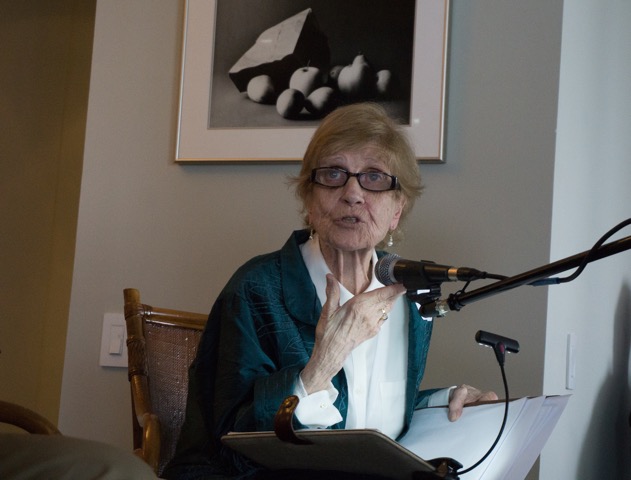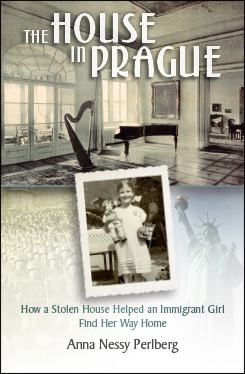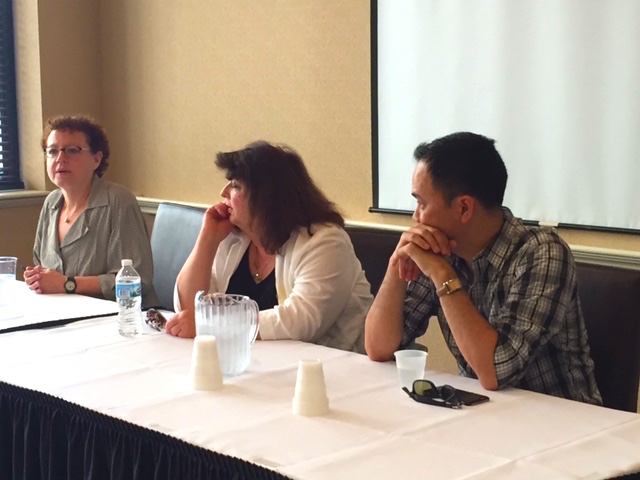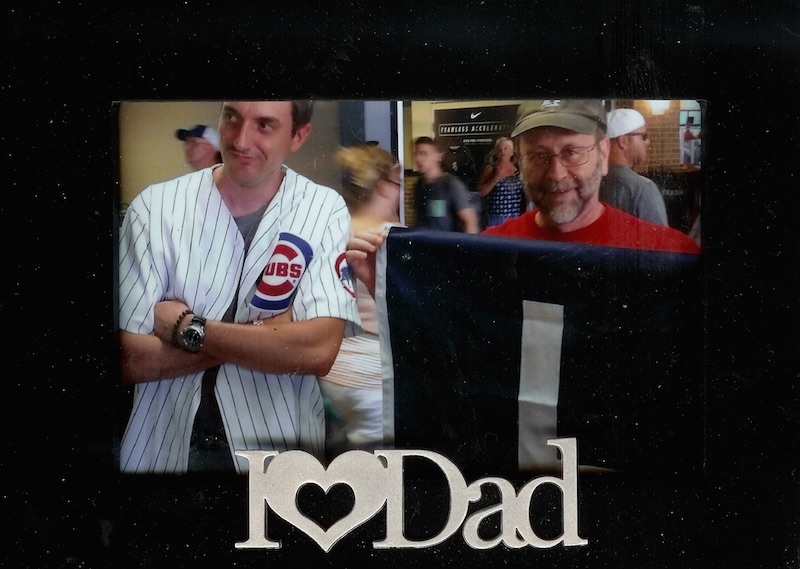Dispatches from 20th century immigrants, part three: Anna
December 21, 2016 • 6 Comments • Posted in blindness, careers/jobs for people who are blind, guest blog, memoir writing, UncategorizedAnna Nessy Perlberg was born in Czechoslovakia. Her mother, Julia Nessy, was an opera singer, and her entire family was devoted to the arts. Her father was Jewish, and when Hitler seized Prague in 1939 she and her two older brothers and their parents left their beloved city for New York.
Anna met her poet husband Mark when they both were students at Columbia. They were married in 1953, and a few years later Mark took a job with Time Magazine that sent him to its Chicago bureau. Anna found work in education and social work. Her last stint was as Director of Blind Service Association (a Chicago non-profit I cherish), and years after retiring she enrolled in one of the memoir-writing classes I lead. Here’s a story she read in class about her first years in Chicago.
by Anna Nessy Perlberg

Anna Nessy Perlberg reads from The House in Prague. Photo by: Diana Phillips, courtesy Lincoln Park Village
It was the middle fifties, and Mark and I had just moved to Chicago. My mother was with us for the holiday. The Czech conductor Rafael Kubelik was also in Chicago. He learned that mother was visiting us and so he came to visit her at our house.
He and mother had concertized together and although there was a difference in their ages — mother was quite a bit older than he — they were good friends.
When he arrived, they embraced and mother introduced Mark and me to him. Then they started to speak in Czech and to recall old times. Suddenly, Kubelik put his face in his hands, saying “It’s almost Christmas Eve, and I don’t have a vanocka.” Vanocka is the Czech version of the German stollen — a sweet cake-like bread, filled with almonds and raisins.
Kubelik looked so sad. Mark and I stared at him and then looked at each other. Simultaneously we had the same thought. After a minute or so, we excused ourselves, saying that we had an errand we’d almost forgotten, but that we’d be back.
We jumped in our car and drove to the Czech section of town on Cermak Street, a street, by the way, that was named after Anton Cermak, an immigrant from an area in Austria-Hungary that is now part of the Czech Republic. (Cermak was mayor of Chicago from 1931 until 1933, when he was at an appearance with Franklin Delano Roosevelt and died from an assassin’s bullet intended for the President-elect.)
in the 1950s there were three Czech bakeries on Cermak. The first one was all sold out of vanockas. Same for the second one. But the third had one left. When we told the Czech saleslady for whom our vanocka was intended, she wrapped it with special care and put a huge red ribbon around it.
Then back in the car and to our neighborhood. We were pretty sure that Kubelik had already left our house, but he had told Mother where he was staying. We drove to the Belden-Stratford Hotel, and told the people at the desk that we had a special delivery for Mr. Kubelik. They sent us up to his room.

Golden Alley Press published The House in Prague.
We knocked and when he opened the door, I said “Vesele Vanoce” (Merry Christmas) and we handed him the vanocka. He was surprised, then understood and hugged us both.
I think of it now, and like to remember that on that occasion Mark and I made someone special feel especially happy with a simple gift of a loaf of special Christmas bread.
The House in Prague, Anna Nessy Perlberg’s memoir of leaving Prague in 1939 and making a new Life in America, was Published this past summer. With immigration in the news, her story is very timely – her publisher, Golden Alley Press, says Anna’s book allows readers to “witness the family’s escape and voyage to Ellis Island and Anna’s struggle to become an American girl in a city teeming with immigrants and prejudice.”


